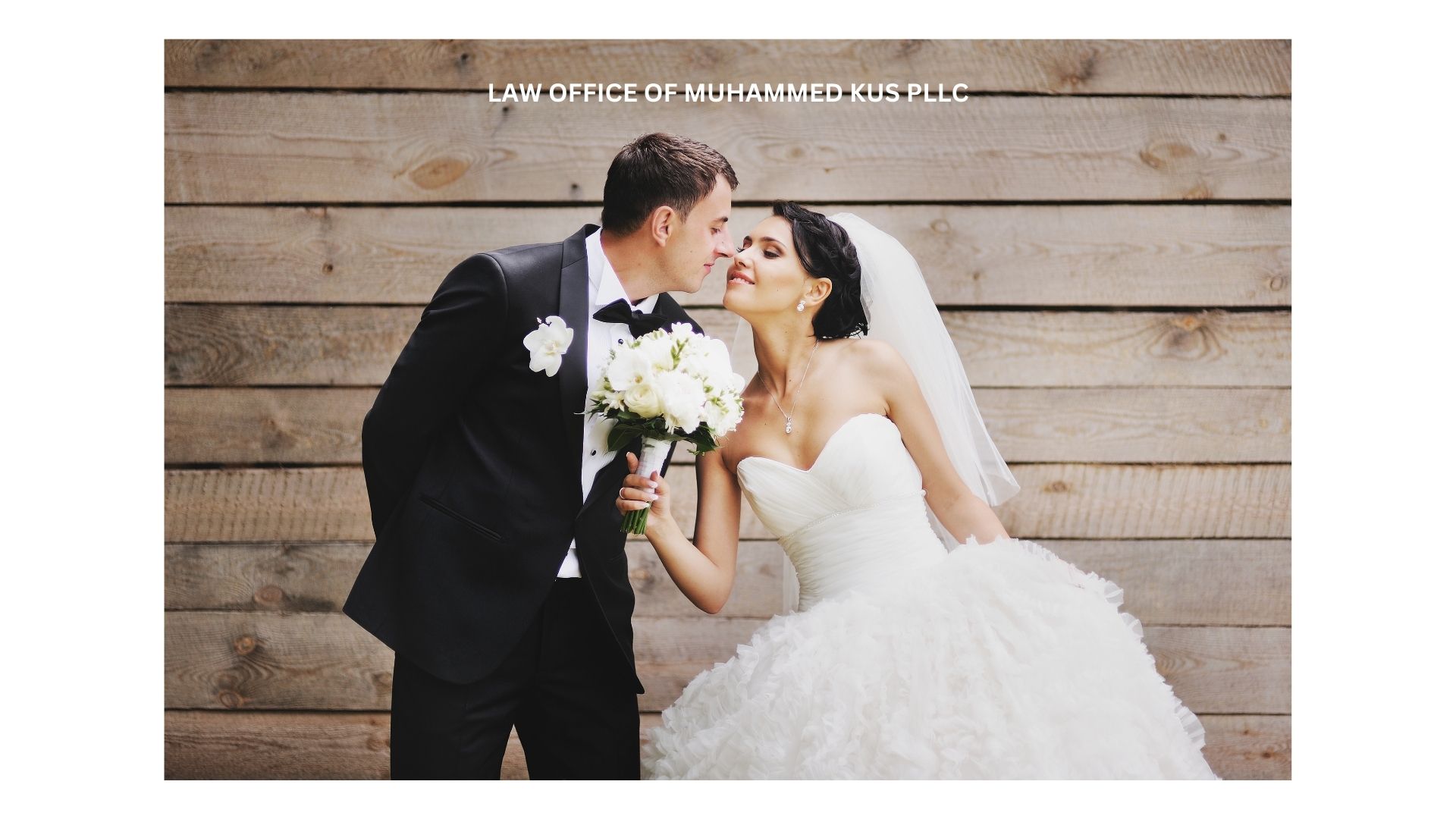One of the key steps in the marriage-based immigration process is demonstrating that your relationship is authentic and not entered into solely for immigration benefits. U.S. Citizenship and Immigration Services (USCIS) requires comprehensive documentation to support your application. Below is an overview of the types of evidence you should provide to strengthen your case:
- Proof of Legal Marriage
- Marriage Certificate: This is a fundamental document that proves you and your spouse are legally married. If the certificate is in a foreign language, include a certified translation.
- Proof of Ending Prior Marriages
- Divorce Decree: If either spouse was previously married, you must submit documentation of the marriage’s legal dissolution, such as a divorce decree or a death certificate of a former spouse.
- Proof of Joint Financial Management
- Joint Bank Account Statements: Statements from shared bank accounts with both names demonstrate financial interdependence.
- Joint Credit Cards: Cards held jointly are also evidence of shared financial responsibility.
- Joint Tax Returns: Copies of tax returns filed together can significantly support the legitimacy of your marriage.
- Bills or Leases: Utilities, rent, or mortgage agreements that include both names further show your shared living arrangement.
- Proof of Cohabitation
- Rental or Mortgage Agreements: Documents showing both names on leases or mortgages are essential if you live together.
- Utility Bills: Joint bills for household expenses like electricity or internet confirm you share a home.
- Proof of Your Relationship’s History
- Photos Together: Pictures of you and your spouse during important events like weddings, holidays, and trips help demonstrate the relationship’s authenticity.
- Communication Records: Copies of emails, texts, or chat logs show consistent communication between you and your spouse.
- Travel Records: Provide plane tickets, hotel bookings, or itineraries from trips taken together to show time spent as a couple.
- Affidavits from Family and Friends
- Letters from Others: Affidavits from family members or friends who know you both and can vouch for the authenticity of your relationship are valuable. The letters should explain how the writer knows you and why they believe your relationship is genuine.
- Proof of Shared Responsibilities
- Children’s Birth Certificates: If applicable, providing the birth certificates of children showing both parents’ names is strong evidence of a committed relationship.
- Insurance Policies: Health, life, or auto insurance policies in both names show shared responsibilities.
- Wills or Trusts: Any documents naming one spouse as a beneficiary on a will or trust also support the legitimacy of the relationship.
- Proof of Name Change
- Legal Name Change Documents: If either spouse changed their last name after marriage, include legal proof of the name change, such as a court order or updated identification.

